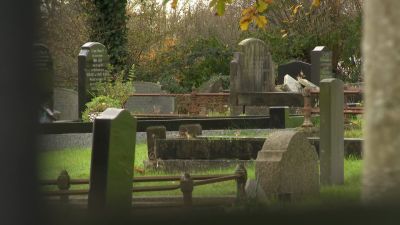Exclusive
Cost of Dying: Helpline calls rocket as thousands struggle with funeral costs

The number of calls to a bereavement helpline has rocketed by almost 20% in 5 years, as the cost of funerals in Northern Ireland looks set to rise by a fifth.
Figures from the Department for Communities (DfC) have revealed 20,538 calls were made to their helpline from 1 April 2021 to 31 March 2022 - a rise of 18% compared to 2016/17.
Belfast Funeral Director Stephen McCosh told UTV that he has seen more families opt for direct cremations without service because they can't afford anything more.
Even the price of coffins has gone up almost 45%.
"We've had direct cremations, pure cremations, unattended funerals, lesser floral tributes and limousines which would have traditionally been apart of 90% of funerals have all been reduced, more basic type coffins... you do feel as they walk away that they're quite possibly disappointed," said Stephen.
The DfC awarded £3.2 million in grants in 2020/21 under the Funeral Payment Scheme, which supports those on benefits, such as pensioners, single parents and the unemployed.
Five years ago, that figure was £1m lower.
The large majority of those receiving the funeral payment are categorised as 'other', with pensioners coming in close behind.
Stephen told UTV that he's seen community fundraisers for local families in the Shankill who can't afford to pay for their loved ones funeral.
"Even those working class families that have always done well for themselves are now in a position that they're going to struggle also and they do struggle," said Stephen.
Insurance firm Sunlife has recorded the cost of funerals across the UK since 2004.
Figures show that while Northern Ireland may historically be the cheapest place in the UK to hold a funeral, figures are predicted to jump by 20% this year - the biggest hike on record.
In 2021, a basic funeral cost was £3,056. In 2022, that's predicted to rise to £3,676.
"The outside costs, which are completely beyond our control, are going to keep going higher and higher and it's whether we can maintain, as long as we can, to try to subsidise... and I don't no how long any businesses or this business can really hold out," said Stephen.
Want a quick and expert briefing on the biggest news stories? Listen to our latest podcasts to find out What You Need To Know.